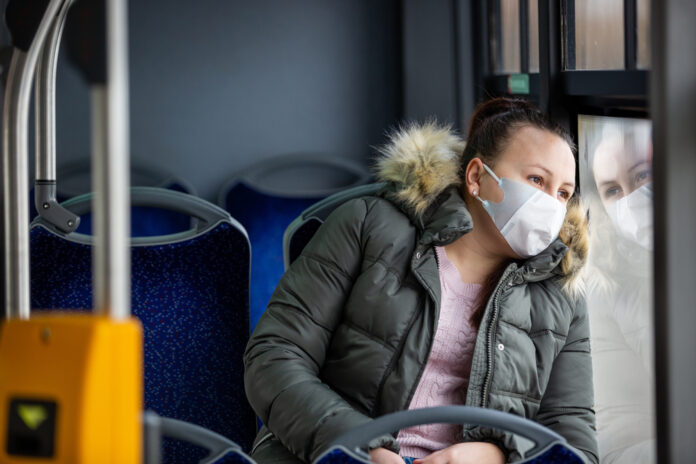How to Travel When Sick
Traveling while sick can be challenging, but with the right precautions and strategies, you can still make the journey more manageable. Whether you’re dealing with a common cold, stomach bug, or other illness, it’s essential to prioritize your health and comfort. Here are some tips on how to travel when sick:
Assess Your Health
- Evaluate the severity of your illness. If you have a contagious illness, consider postponing your travel plans to avoid spreading it to others.
- Consult a healthcare professional before traveling, especially if you have a chronic or serious illness.
Plan Ahead
- Choose a travel method that suits your condition. For example, if you have motion sickness, consider traveling by train or car instead of plane.
- Pack essential medications and remedies for your illness, such as pain relievers, fever reducers, cough drops, and anti-nausea medication.
- Bring a doctor’s note or medical certificate if you need to explain your condition to transportation or accommodation providers.
Stay Hydrated
- Drink plenty of water to stay hydrated, especially if you have a fever, diarrhea, or are vomiting.
- Avoid caffeine and alcohol, as they can dehydrate you further.
Rest When Possible
- Take breaks and rest when needed, especially during long journeys.
- If traveling by plane, try to book a seat with extra legroom for more comfort.
Maintain Good Hygiene
- Wash your hands frequently with soap and water, or use hand sanitizer.
- Cover your mouth and nose with a tissue or your elbow when coughing or sneezing.
- Avoid touching your face, especially your eyes, nose, and mouth.
Eat Light and Healthy
- Stick to bland, easy-to-digest foods if you have stomach issues.
- Pack snacks that are gentle on the stomach, such as crackers, bananas, or applesauce.
Dress Comfortably
- Wear loose, comfortable clothing that allows you to move easily.
- Bring layers in case you feel too hot or too cold during your journey.
Stay in Contact
- Keep your travel companions, family, or friends informed about your condition and whereabouts.
- Carry a fully charged phone and charger to stay connected in case of emergencies.
Be Prepared for Emergencies
- Familiarize yourself with the nearest medical facilities at your destination.
- Carry a small first aid kit with essentials like bandages, antiseptic wipes, and pain relievers.
Consider Travel Insurance
- If you’re traveling internationally or have a pre-existing medical condition, consider purchasing travel insurance that covers medical emergencies.
Conclusion
Traveling when sick requires careful planning and consideration for your health and well-being. By following these tips, you can make your journey more comfortable and reduce the risk of complications. Remember to prioritize rest, hydration, and hygiene to help your body recover while on the move.
Causes of Travel Sickness
Travel sickness, also known as motion sickness, occurs when there is a disconnect between what your eyes see and what your inner ear senses. This confusion can lead to symptoms like nausea, dizziness, sweating, and vomiting. Here are some common causes of travel sickness:
- Inner Ear Imbalance: The inner ear (vestibular system) plays a crucial role in maintaining balance. When you’re in a moving vehicle, the motion can disrupt the signals sent from your inner ear to your brain, leading to motion sickness.
- Conflicting Sensory Signals: When you’re traveling, your eyes may see the interior of a moving vehicle, which indicates that you’re stationary. However, your inner ear senses the motion, causing a conflict between what your eyes see and what your body feels.
- Reading or Screen Use: Reading a book or staring at a screen while traveling can worsen motion sickness. Your eyes are focused on a stationary object, but your body is sensing motion, leading to increased disorientation and nausea.
- Poor Ventilation: Stuffy or poorly ventilated environments can exacerbate motion sickness. Fresh air can help reduce feelings of nausea and discomfort.
- Anxiety or Stress: Emotional factors like anxiety or stress can contribute to motion sickness. These feelings can increase your sensitivity to motion and make you more prone to experiencing travel sickness.
- Travel Route: Traveling on winding roads or routes with frequent stops and starts can increase the likelihood of motion sickness. The constant changes in motion can confuse your senses and lead to symptoms.
- Genetics: Some people may be more genetically predisposed to motion sickness. If your parents or siblings experience travel sickness, you may be more likely to experience it as well.
- Age: Children between the ages of 2 and 12, as well as older adults, are more prone to motion sickness. The inner ear, which helps maintain balance, is still developing in young children and may be less effective in older adults.
- Pregnancy: Pregnant women may experience an increased susceptibility to motion sickness due to hormonal changes and increased sensitivity to sensory stimuli.
- Lack of Habituation: Habituation is the process by which your body adapts to motion over time. If you’re not a frequent traveler, you may be more susceptible to motion sickness until your body becomes accustomed to the motion.
Understanding the causes of travel sickness can help you take preventive measures and manage symptoms more effectively when traveling.
Tips for Traveling When Sick
Traveling while sick can be challenging, but with the right approach, you can make your journey more manageable and comfortable. Here are some tips for traveling when sick:
- Consult a Healthcare Professional: Before you travel, especially if you’re feeling unwell, it’s advisable to consult with a healthcare professional. They can provide guidance on whether it’s safe for you to travel and offer recommendations for managing your illness during your trip.
- Pack Essentials: Make sure to pack any medications or remedies you might need for your illness. This includes pain relievers, fever reducers, cough syrup, throat lozenges, and any other prescribed medications.
- Stay Hydrated: It’s essential to stay hydrated when you’re sick, especially if you have a fever or are experiencing vomiting or diarrhea. Carry a water bottle with you and drink fluids regularly.
- Rest: Traveling can be exhausting, so it’s important to get plenty of rest, especially if you’re feeling unwell. Try to schedule downtime in your itinerary to rest and recuperate.
- Eat Light and Healthy: Stick to easily digestible foods that won’t upset your stomach. Avoid greasy, spicy, or heavy meals, and opt for bland foods like crackers, toast, rice, and bananas.
- Dress Comfortably: Wear comfortable, loose-fitting clothing that allows you to move freely. Layers are a good idea, as you can easily adjust your clothing to suit your comfort level.
- Practice Good Hygiene: Wash your hands frequently with soap and water, or use hand sanitizer. Cover your mouth and nose with a tissue or your elbow when coughing or sneezing.
- Avoid Contact with Others: If you have a contagious illness, try to avoid close contact with others to prevent spreading the infection. Consider wearing a mask to protect others and reduce the risk of transmission.
- Stay in Touch: Keep your travel companions informed about your condition and whereabouts. Carry a fully charged phone and charger in case you need to contact someone in an emergency.
- Consider Travel Insurance: If you’re traveling internationally or have a pre-existing medical condition, consider purchasing travel insurance that covers medical emergencies. This can provide peace of mind and financial protection if you need medical treatment while traveling.
By following these tips, you can make your journey more comfortable and minimize the impact of your illness on your travel plans. Remember to prioritize your health and well-being, and don’t hesitate to seek medical attention if you need it.
What to do if you get sick while traveling?
If you get sick while traveling, it’s important to take steps to manage your illness and ensure your comfort. Here’s what you can do if you get sick while traveling:
- Rest: If possible, take a break from your travel activities and rest. Allow your body to recover and regain strength.
- Stay Hydrated: Drink plenty of fluids, such as water, herbal tea, or electrolyte drinks, to stay hydrated. This is especially important if you have a fever, vomiting, or diarrhea.
- Take Medications: If you have over-the-counter medications for your symptoms, such as pain relievers, decongestants, or cough suppressants, take them as directed. If you’re unsure about which medications to take, consult a healthcare professional.
- Seek Medical Attention: If your symptoms are severe or don’t improve with self-care, seek medical attention. Visit a local healthcare provider or hospital for evaluation and treatment.
- Avoid Spreading Illness: If you have a contagious illness, such as the flu or a cold, take precautions to prevent spreading it to others. This includes washing your hands frequently, covering your mouth and nose when coughing or sneezing, and avoiding close contact with others.
- Stay in Touch: Keep your travel companions informed about your condition and whereabouts. If you’re traveling alone, let someone know about your illness and how they can contact you.
- Adjust Your Travel Plans: Depending on the severity of your illness, you may need to adjust your travel plans. Consider delaying your journey until you’re feeling better or returning home early if necessary.
- Stay Comfortable: Dress in comfortable clothing and use blankets or pillows to make yourself more comfortable. Consider using a travel pillow or blanket for added comfort during your journey.
- Stay Positive: While being sick during travel can be challenging, try to stay positive and focus on your recovery. Rest assured that your health and well-being are the top priorities.
- Follow Up: After your trip, follow up with a healthcare provider if needed to ensure your illness has resolved and to address any lingering symptoms.
How Do you Travel with a Cold?
Traveling with a cold can be uncomfortable, but with some preparation and care, you can manage your symptoms and make your journey more bearable. Here are some tips for traveling with a cold:
- Pack Essentials: Bring along any medications you may need, such as decongestants, cough drops, or pain relievers. It’s also a good idea to pack tissues, hand sanitizer, and a thermometer.
- Stay Hydrated: Drink plenty of fluids, such as water, herbal tea, or clear broth, to stay hydrated. Avoid alcohol and caffeinated beverages, as they can dehydrate you.
- Rest: Try to get plenty of rest before and during your journey. Consider adjusting your travel plans to allow for extra rest breaks.
- Manage Symptoms: Use over-the-counter medications to manage your symptoms. Decongestants can help relieve nasal congestion, while cough suppressants can help reduce coughing. Pain relievers can help reduce fever and relieve aches and pains.
- Practice Good Hygiene: Wash your hands frequently with soap and water, or use hand sanitizer. Cover your mouth and nose with a tissue or your elbow when coughing or sneezing to prevent spreading germs.
- Stay Comfortable: Dress in comfortable, layered clothing that you can easily adjust. Consider bringing a travel pillow and blanket for added comfort during your journey.
- Avoid Spreading Germs: If possible, avoid close contact with others, especially those who are more vulnerable to illness, such as young children or elderly individuals.
- Stay Positive: While having a cold during travel can be frustrating, try to stay positive and focus on the enjoyable aspects of your trip. Rest assured that your symptoms will likely improve with time.
- Consider Travel Insurance: If your cold worsens or you develop complications during your trip, having travel insurance can help cover medical expenses and provide assistance in navigating local healthcare systems.
- Rest Upon Arrival: Once you reach your destination, prioritize rest to allow your body to recover fully.
By taking these precautions and caring for yourself, you can manage your cold symptoms and still enjoy your travels.





